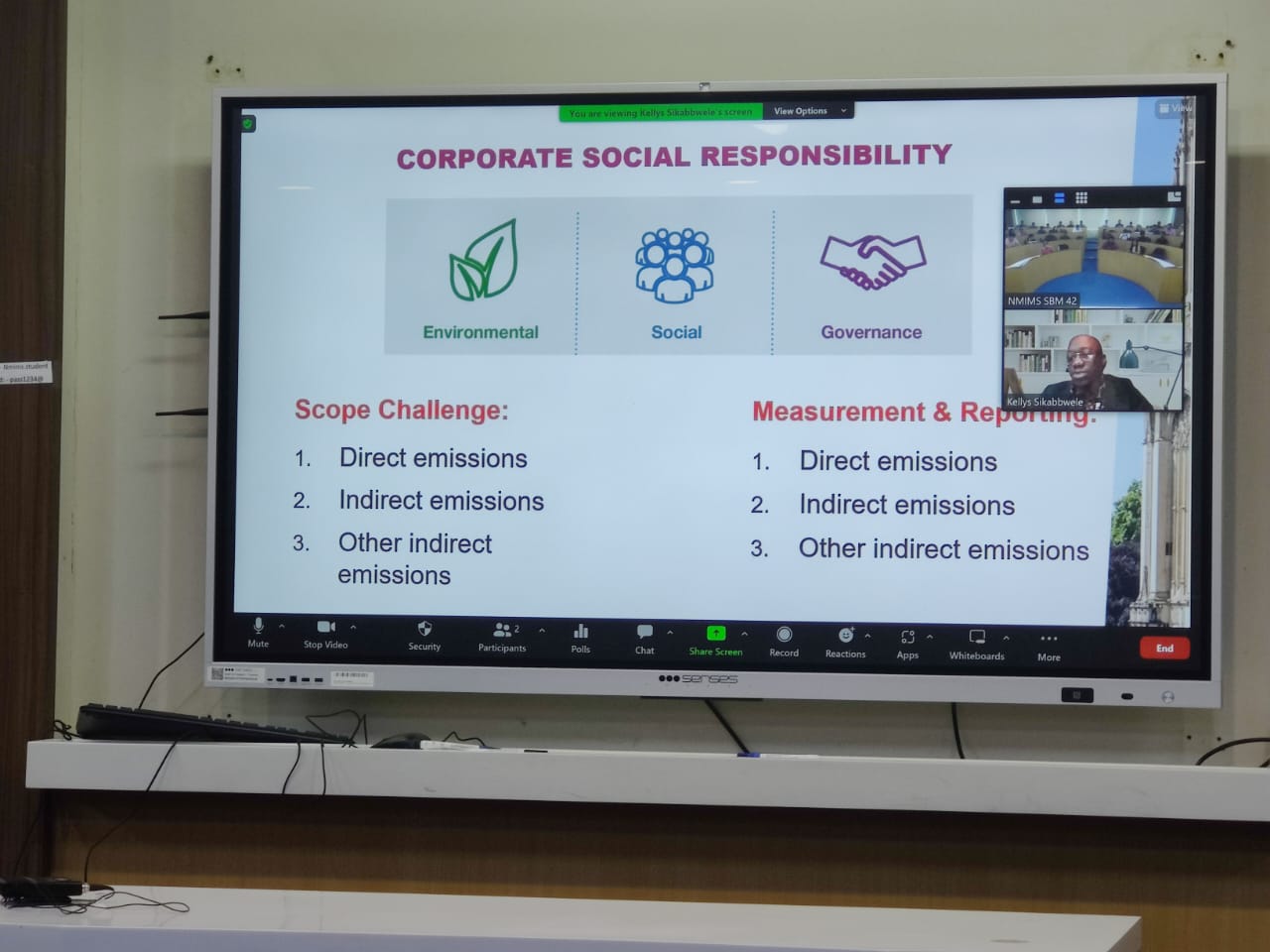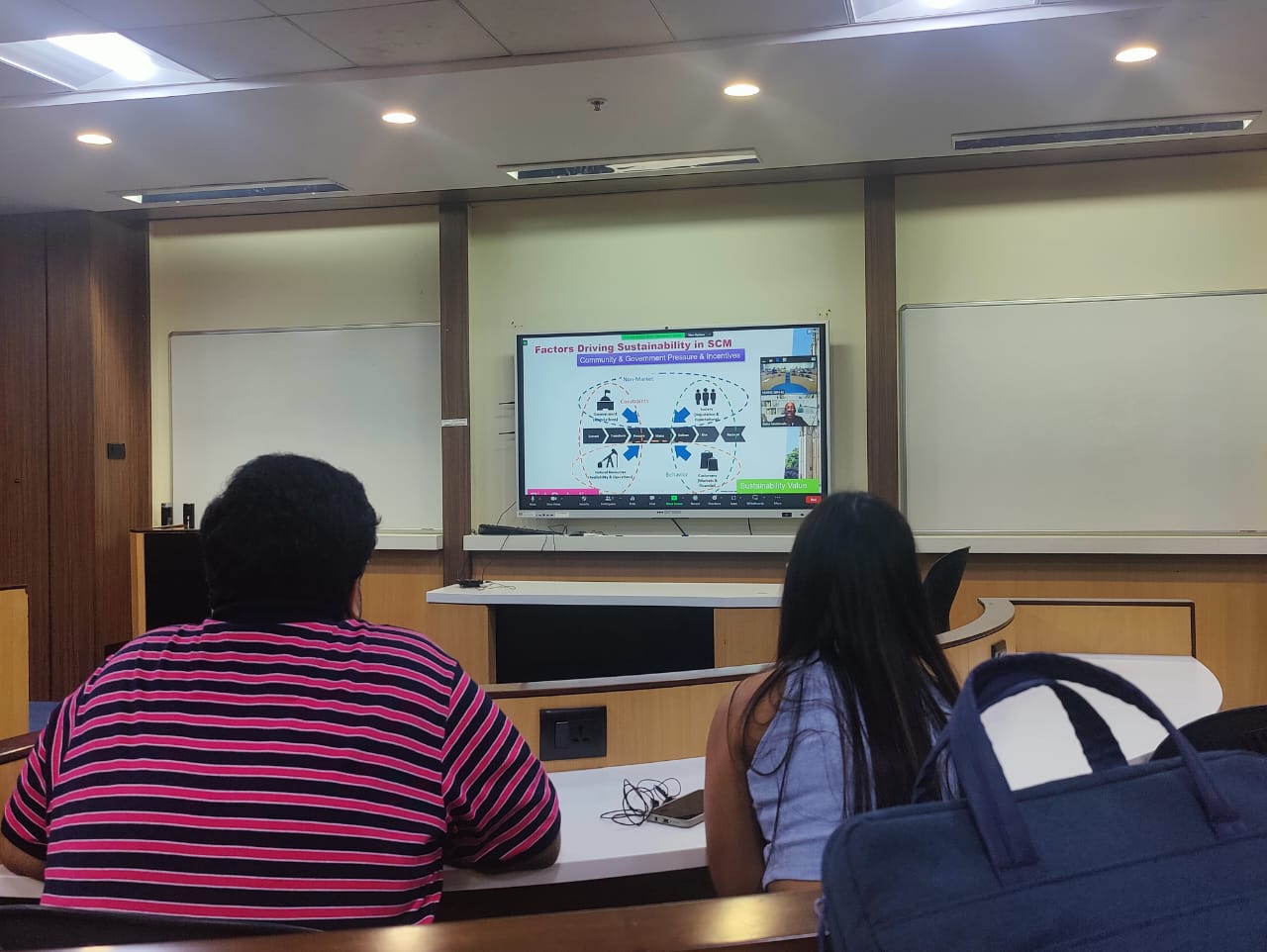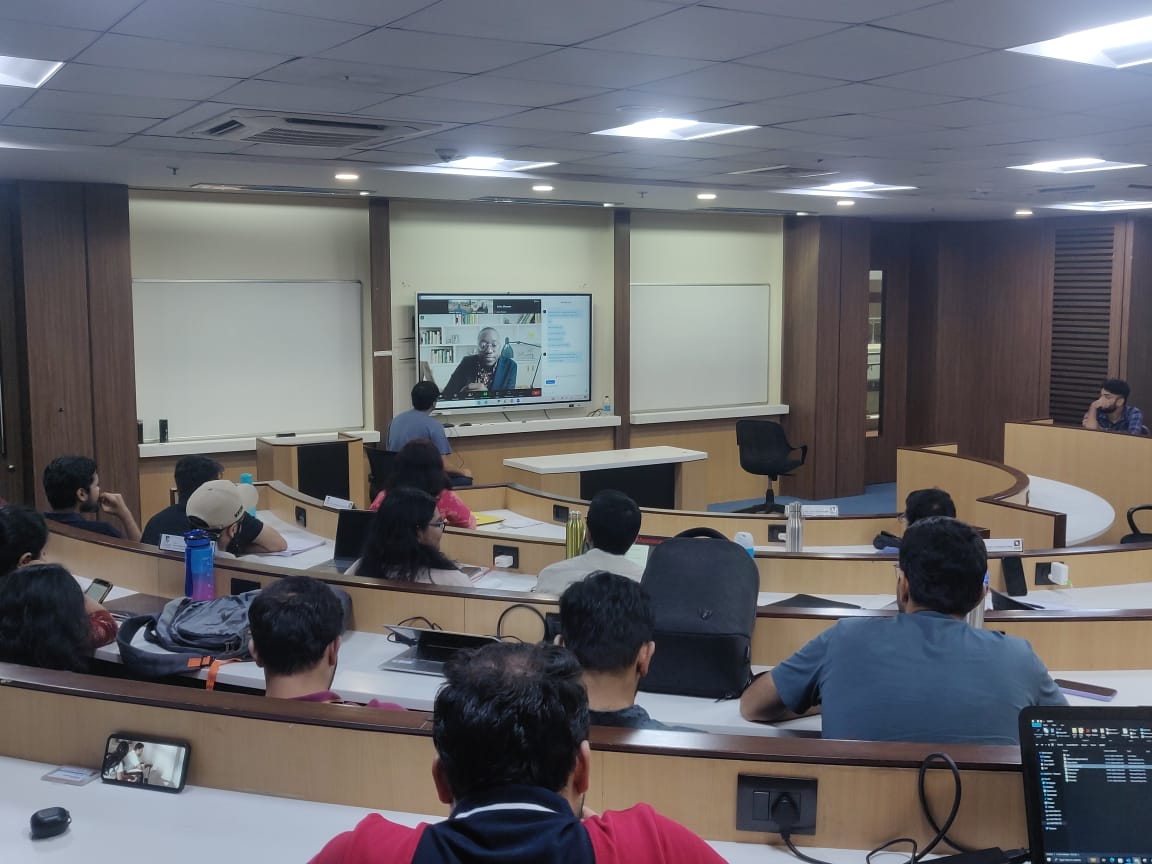

.jpg)
Guest Session- Sustainability in Supply Chain
Date: 30th July’2023
Class Time: 10:10 am SCM Div A and 11:50 am Div B
Speaker: Prof Kellys Sikabbwele, University of Bristol
Profile:
Prof Kellys Sikabbwele has previously worked as a Unit Director for Global Supply Chain Management in the MSc Global Supply Chain Management at the University of Bristol. He completed his Ph.D. in Management Studies with a particular focus on ‘sustainable operations and supply chain management’ from the University of Liverpool in 2021. He holds an MSc in Operations and Supply Chain Management from the University of Liverpool. He has international experience in higher education teaching Supply Chain Management at various levels such as executive training, undergraduate and postgraduate. He has over eight years of teaching experience to multicultural students in higher education in the UK and overseas. His research interests focus on exploring paradoxical tensions and enablers for sustainable supply chain management. He has previously worked on various consultancy projects to help companies develop sustainable supply chains. He is a reviewer for the European Operations Management Association Conferences and has previously published and presented at several conferences including BAM and EurOMA.
The class welcomed Prof Kellys Sikabbwele for the guest session on “Sustainable Supply Chain”. The Class Representative introduced the Guest speaker.
Learnings from the Session:
In today's rapidly changing business landscape, sustainability has emerged as a critical driver for success, and supply chain management plays a pivotal role in this transformation. As students of Supply Chain Management, we have delved deep into understanding the importance of sustainability, its objectives, and the challenges it brings. This lecture has shed light on various sustainability issues, the exponential growth in world trade, and the risks that demand immediate attention. We have consolidated our learning and explored how organizations can embrace sustainability to create a positive impact and gain a competitive advantage.
Sustainability in Supply Chain Management:
At its core, sustainability in supply chain management refers to the harmonious integration of environmental, social, and economic considerations throughout the supply chain. Recognizing the growing importance of sustainability, businesses have set objectives and adopted philosophies that align with this transformative approach. With world trade growing by a staggering 4500% from 1950 to 2022, organizations face challenges and risks that necessitate a proactive and sustainable response.
Addressing Risks and Drivers:
In the quest for sustainability, organizations must confront various risks, including the cost of living crisis, natural disasters, climate change, and geo economic confrontations. These risks underscore the urgency of adopting sustainable practices that encompass risk reduction, community and government pressures, and alignment with sustainability values.
Moreover, businesses must recognize the value of sustainability for their customers. Awareness, perception, and action are key factors that influence customers' choices and preferences. Hence, integrating sustainability into the supply chain can lead to enhanced brand loyalty and customer trust.
CSR and ESG Integration:
Corporate Social Responsibility (CSR) plays a significant role in driving sustainability efforts. A strategic CSR approach encompasses environmental, social, and governance (ESG) factors, driving firms to focus on resource and emission reduction, human rights, community impact, and effective organizational structures and policies. This integrated approach aligns businesses with sustainable practices and helps them fulfil their moral obligations, gain a license to operate, and safeguard their reputation.
CSR and Competitive Advantage:
Porter and Kramer's seminal paper on "Strategy and Society" highlights the link between competitive advantage and corporate social responsibility. Organizations that proactively adopt CSR and embed sustainability into their operations can derive competitive advantages, such as improved reputation, customer loyalty, and operational efficiencies.
Greening SCM for Efficiency:
To achieve sustainability, organizations embrace Green Supply Chain Management (GSCM) principles. GSCM focuses on reducing resource usage, improving supply chain efficiency, eliminating waste, and incorporating circular economy practices. By doing so, organizations can create more sustainable and resilient supply chains while minimizing their ecological footprint.
The session ended with a discussion on the Greening of Walmart Supply Chain followed by Q&A by the students which were answered by the professor.
In conclusion, our exploration of Sustainable Supply Chain Management has enlightened us on the critical role of sustainability in modern business practices. Understanding sustainability's importance, embracing CSR, and implementing GSCM principles empower organizations to address risks, gain competitive advantages, and contribute positively to society and the environment.
The class representative extended a Vote of Thanks to Prof Kellys.


